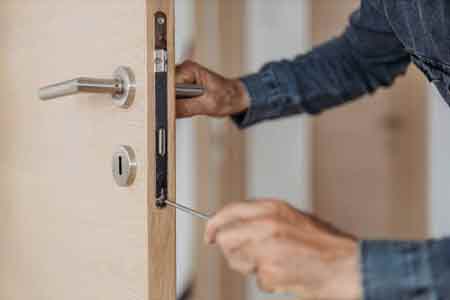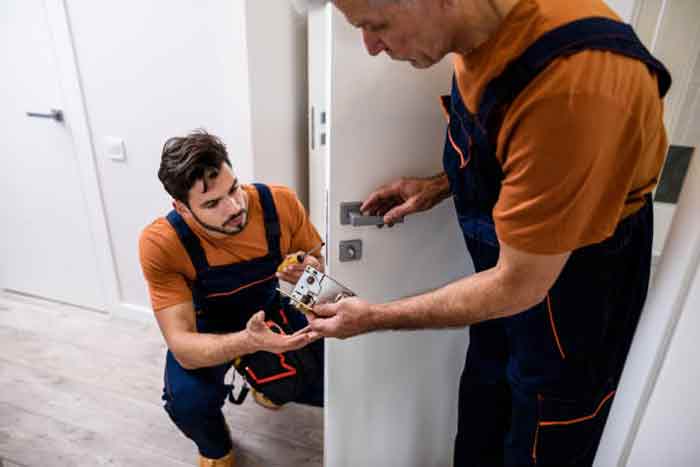There are many jobs a locksmith performs. Learn about some of them below. There are also some tools and hazardous materials they might encounter while performing their duties. Also learn about some of the requirements to become a locksmith. This article will help you make up your mind. Locksmiths are in high demand these days, so if you are interested in this profession, read on! It will be worth it! Read on to discover the many benefits of being a locksmith.

Some of the jobs a locksmith performs
The many types of locks available today require the use of a Locksmith. Locksmiths need to be able to use a wide variety of tools and techniques to open doors, secure valuables, and unlock vehicles. Their work requires a high level of dexterity and mechanical expertise, as well as physical strength. Some of the jobs a Locksmith performs include installing and repairing electronic or pneumatic fixtures, unlocking cars, and performing roadside assistance.
A locksmith’s job description varies greatly, depending on the type of work they do. They may also use hand-operated key-cutting machines to duplicate keys. They may also install and adjust electro-magnetic latching systems and card-reading and scanning devices. Locksmiths can also maintain a comprehensive inventory of materials and perform related tasks, including key-cutting and making machines. Listed below are just some of the jobs a locksmith performs.
Tools they use
The tools a locksmith uses to unlock doors are many and varied. These include a lock pick tool, which is a device that spins the plug back when the wrong key is picked. Many locksmiths use specialised tools, such as key decoders, lock scopes and plug spinners, but these are only a few of the most important. Locksmiths also use specialized tools such as key blanks and magnetic hammers.
A hook is a useful lockpicking tool, which can be used upside down or as a “bitch pick.” It offers great diversity when it comes to single-pin picks. A hand-held scope is another tool a locksmith needs. These tools help the ключар София measure tight spaces and adjust tiny parts. They also reduce the risk of damage during the installation process. A good quality locksmith’s toolbox should have a range of locksmith tools and essential equipment.
Hazardous materials they may be exposed to
While performing his/her job, a locksmith may come into contact with different types of hazardous materials. These materials may include flammable liquids, flammable gases, poisons, and radioactive materials. These materials may be released into the environment in dangerous amounts. To avoid exposure to these materials, locksmiths must follow a few safety precautions. One of the most common safety precautions is to follow HAZWOPER regulations.
Lead exposure is another of the hazards a locksmith may encounter. Brass keys contain 1.5 to 2.5 percent lead, and even a small quantity of this metal can pose a risk. Although minuscule amounts of lead are not harmful to humans, exposure to high levels can have adverse health effects. A locksmith’s blood lead levels may be elevated, causing pain, emotional instability, and even inability to concentrate.
Requirements for becoming a locksmith
There are specific requirements for becoming a locksmith in New York City. Locksmith apprenticeships are offered at New York City College of Technology, which offers courses and apprenticeships in the field. An apprenticeship in locksmithing requires a student to accrue 8,000 hours of study and must learn about the different types of locks, how to fabricate keys, and use hand tools. Apprentices also need to know how to manage inventory. Locksmiths are also responsible for changing locks, doors, closures, and keyless entry systems.
Depending on the location of your apprenticeship, you can complete your training on the job. This is generally unpaid, and the trainees learn from experienced locksmiths. Apprenticeships can last anywhere from three months to four years. In some states, you must work for a locksmith business licensed by the state. Apprentices should have an interest in locksmithing and have a strong background in construction or architecture. In addition, apprentices must have a high school diploma and be 18 years of age.

